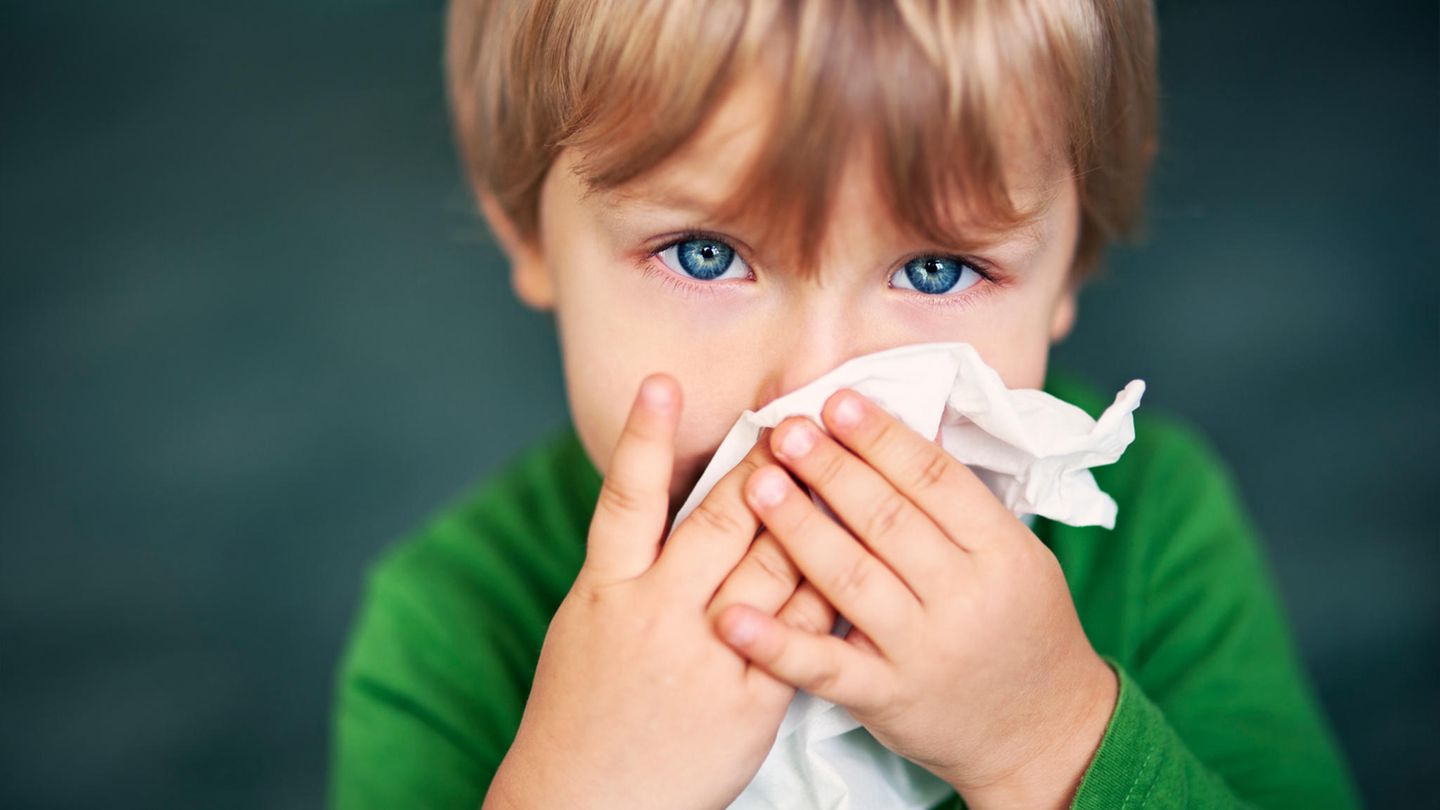A striking number of children currently have respiratory infections that usually only occur in winter – doctors speak of a catch-up effect. This presents hospitals with new challenges.
Runny nose, cough and fever: a noticeable number of children have been going through respiratory infections for a few weeks now that would actually only be expected in the winter months. Those under six are particularly affected, said Jakob Maske, spokesman for the Federal Association of Pediatricians. Due to the closings of daycare centers and other corona measures last winter and spring, they have not yet come into contact with certain pathogens. “The infections are now being caught up.”
The Robert Koch Institute (RKI) reports a sharp increase in hospital admissions for infections with the respiratory syncytial virus (RSV) in one to four year olds. This infection of the upper respiratory tract can be particularly dangerous for premature babies and previously ill children in the first year of life. According to the RKI, in the years before the pandemic in September, around 60 to 70 one to four-year-olds per week with severe respiratory infections were admitted to clinics, currently there are twice as many. The RKI expects a further increase.
Too little nursing staff
“Unfortunately at the moment there is an escalation,” said Maske, who has a pediatrician practice in Berlin. “We have a little more sick children than usual at that time and fewer and fewer beds in children’s hospitals because there is a lack of staff.” The doctors take care of the care of seriously ill children in autumn and winter. According to Maske, it is already very difficult to place small patients in the hospital. Another reason is that too few child nurses are trained.
“The children’s clinics closed very early,” said the Hanoverian pediatrician Thomas Buck, member of the board of the Lower Saxony Medical Association. His patients would have had to move to clinics around 40 kilometers away.
RSV outbreaks were expected
Larger outbreaks of RSV among children were reported in Israel in May and in the United States, Australia and Japan during the summer months. The RKI therefore warned in the summer to prepare for a similar scenario. “As a rule, children encounter RSV every year and build up a certain level of immune protection,” explained the RKI experts. This help in warding off the pathogens is now missing because there were almost no RSV diseases last winter due to the corona measures.
“We are also concerned that there is a flu wave,” said Buck. In the last half of the winter pandemic, with many hygiene precautions and limited contacts, there was practically no flu wave. Doctors hope that the readiness for the upcoming season remains high.
The paediatricians advocate making everyday life as normal as possible for children and adolescents after months of deprivation. It is often a difficult decision for parents whether to send their child to daycare or school with a sniffy nose or a sore throat. Since the beginning of the pandemic, everyone with cold symptoms has been looked at crookedly, and there is always a suspicion of a corona infection in the room.
“You have to make wise risk assessments,” said Buck. “We want the children to finally go to kindergarten and school again and avoid unnecessary sick leave.” On the other hand, it is also about not overlooking any corona infection if possible.




